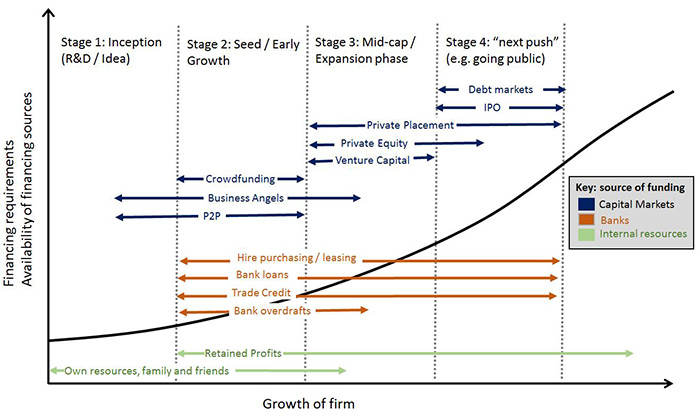Crowdfunding

date: 31/01/2020
The European Union has introduced EU-wide rules that will help crowdfunding platforms provide services across the EU's single market with a single authorisation. Start-ups and other small and medium-sized businesses (SMEs) frequently struggle to find financing in the early stages of setting up a business or when expanding. Traditional funding channels, such as bank loans, can be prohibitively expensive. Consequently, many promising new companies, suffering from a shortage of money at the crucial early stages of development, never get off the ground. Crowdfunding offers a way to help SMEs grow enough to be able to access other sources of financing. The new rules will allow more European businesses to take advantage of these opportunities.
Helping young companies
Crowdfunding is an innovative funding tool that allows entrepreneurs to make an 'open call' to the wider public to get financial support for a specific business project. This is generally done through an internet-based platform. The new rules, which offer a harmonised set of criteria, cover two popular crowdfunding models for providing early stage businesses with finance: investment-based and lending-based crowdfunding. These two models offer the promise of a financial return for investors through equity, bonds or similar financial instruments issued by the company. Crowdfunding can help young companies grow and develop, to a stage where they are able to access other sources of financing (such as venture capital). This helps fill the gap in the 'funding escalator' that early stage or scale-up businesses currently face (see graph below).
Overall, crowdfunding in the EU is underdeveloped compared with other major world economies. However, it is steadily growing and establishing itself as a tool for early-stage business finance. Nonetheless, crowdfunding has caught on at very different rates across the EU. While in some countries, such as France and Germany, the alternative finance sector has grown considerably, in others it remains extremely small.
One of the main hurdles so far has been the lack of common rules across the EU. This has made it difficult for crowdfunding platforms to expand across borders. As a result, the crowdfunding industry has not been able to fully exploit the benefits of the single market. And investors and entrepreneurs based in smaller countries have been missing out on a valuable investing/financing tool as well as opportunities for diversification.
New rules
The new framework will make it easier for crowdfunding platforms to operate across Member States. This will widen the pool of investors. It will also enhance the 'network effects' within platforms. This is because there will be more projects to choose from, allowing investors to diversify their investments. Furthermore, entrepreneurs will find it easier to raise funds in a bigger market and will even be able to choose from more investors who can also contribute to the management of the company.
The new rules introduce an optional EU regime that enables crowdfunding platforms to easily provide their services in the European single market. Instead of having to comply with different national legislation and therefore apply for separate licenses, platforms will only have to comply with one set of rules when operating across the EU. For investors, the proposal will provide a reliable space for supporting innovative projects. Clear and transparent rules will mean they are aware of risks, while having the freedom to easily invest in companies they want to support.
The new rules in a nutshell...
- establish a one-stop-shop access to the EU market and therefore help crowdfunding platforms overcome the barriers they face operating cross-border;
- provide tailored rules for EU crowdfunding services providers covering both investment-based and lending-based business models;
- give more opportunities to EU investors while safeguarding a high level of investor protection in relation to crowdfunding services;
- define the requirements crowdfunding service providers have to fulfil in order to get authorisation.
Read more on crowdfunding

